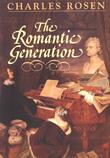Gomes, Carlos
Period: Romantic
Born: Monday, July 11, 1836 in Campinas, State of São Paulo, Brazil
Died: Wednesday, September 16, 1896 in Belém, State of Pará, Brazil
Nation of Origin: Brazil
Major Works:
Operas
Other Information:
Antonio Carlos Gomes was born in Campinas, State of São Paulo, Brazil, on July 11, 1836. He studied music with his father who was a chapel master in his hometown. In 1859, he went to Rio de Janeiro, capital of the Brazilian Empire, to study at the Conservatory of Music. There he wrote two operas with librettos in Portuguese, A noite do Castelo (The Castle Night), 1861, and Joanna de Flandres (Joanna of Flanders), 1863. He obtained the highest degree at the music school and, in 1863, received a Scholarship to study in Milan, Italy. After his studies at the Conservatorium in that city, he wrote the music for Se sa minga (It’s not know), a musical event of Antonio Scalvini, that was presented at the Fossati Theatre in December, 1866. He obtained great success and wrote music for another musical event, Nella Luna (On the moon), of Eugenio Torelli-Viollier, in 1868. He then began to write his great operas: Il Guarany, a history of Brazilian Indians with a libretto by Antonio Scalvini and Carlo D`Ormeville, inaugurated in February, 1870, at the Theather alla Scala of Milan, where it was very well received. Fosca was inaugurated at the same theatre in 1873 but, despite of its musical qualities, it was considered to be a Wagnerian style that was not yet appreciated in Italy. Salvator Rosa, at the Theather Carlo Felice, Genova, 1874, was clearly a return to the previous melodism and was, beside Il Guarany, one of his most successful works. Maria Tudor, at the Theather alla Scala, 1879, attempted to be a work between the symphonic Fosca and the melodic Salvator Rosa. Lo Schiavo (The slave), at the Pedro II Theatre in Rio de Janeiro, Brazil, 1888, is libelous against the slavery that existed in Brazil until that year and, in Act IV, is the “Alvorada” (Dawn), a great work of orchestration; Condor, at the Theather alla Scala, 1891, is also known as Odalea. His last work, Colombo, Lyric Theatre, Rio de Janeiro, 1892, is a vocal-symphonic poem for the festivities of the discovery of America. He also wrote many songs, a string quartet and hymns that included Saluto del Brasile for the commemorations of the centennial of American independence in 1876. He was invited to be director of the Conservatory of Venice but refused due to poor health. He returned to Brazil in 1895 and died the following year in the city of Belém, State of Pará, where he had been designated director of the conservatory.
Essay contributed by:
Dr. Lenita W. Mendes Nogueira
Composer Bibliography:
Goes, Marcus. A força indômita. Secult, Belém do Pará, 1996.
Goes, Marcus. Un pionere alla Scala. Nuove Edizioni, 1997.
Nogueira, Lenita W. M. Music in Campinas in the last years of the empire [Música em Campinas nos últimos anos do império]. Campinas, Ed. Unicamp [State University of Campinas], 2002.
Nogueira, Lenita W. M. Carlos Gomes Museum: A catalogue of musical manuscripts. [Museu Carlos Gomes: catálogo de manuscritos musicais] São Paulo, 1998.
General Bibliography:
Blume, Friedrich, with Norton, M. D. (Translator) and Norton, Herter (Translator), Classic and Romantic Music; A Comprehensive Survey, W. W. Norton & Company, November 1970, ISBN: 0393098680
Einstein, Alfred. Music in the Romantic Era, W. W. Norton & Company, December 1947, ISBN: 0393097331
Rosen, Charles, The Romantic Generation, W. W. Norton & Company, April 1995, ISBN: 0674779347
Slonimsky, Nicolas and Kuhn, Laura; Editors, Baker's Biographical Dictionary of Musicians, Gale Group, December 2000, ISBN: 0028655257
Sadie, Stanley and Tyrrell, John; Editors, The New Grove Dictionary of Music and Musicians, Groves Dictionaries, Inc., January 2004, ISBN: 0195170679
Rutherford-Johnson, Tim, Kennedy, Michael, and Kennedy, Joyce The Oxford Dictionary of Music, Oxford University Press, 6th Edition, 2012, ISBN: 0199578109
Links to essays at other sites:
Please note: Each link will open in a new window.
Biographical essay from Wikipedia
